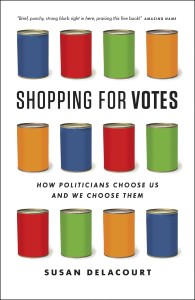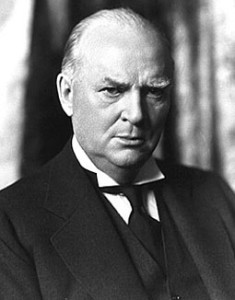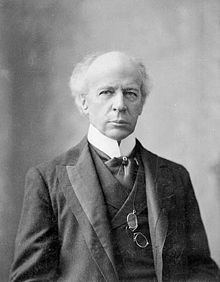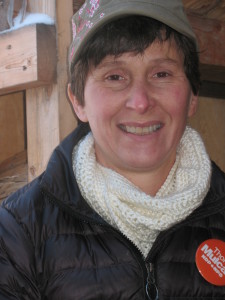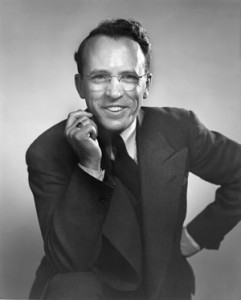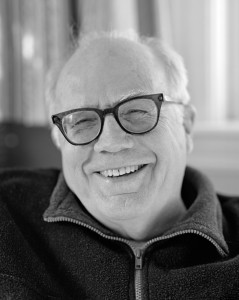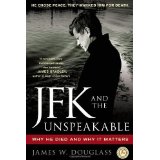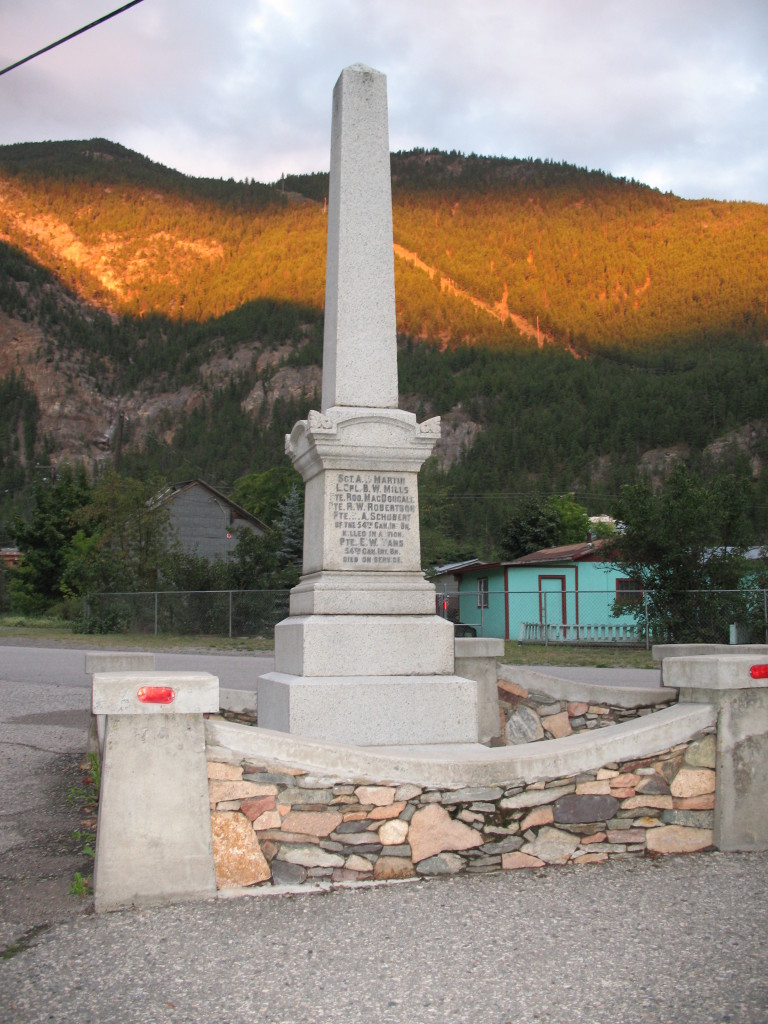
Hedley is preparing to commemorate a nearly forgotten but significant piece of its history. On August 22nd citizens of the Similkameen Valley will assemble at 1:30 pm for a ceremony at the Cenotaph on Scott Avenue. The purpose is to remember the 17 Hedley men who departed from this very spot on August 24th , almost exactly100 years ago, to enlist in the Canadian military. Those who enlisted before and after this date will also be remembered. Except for the diligent research of Andy English and Jennifer Douglass, this event would have continued to languish in the dust bin of history.
Very likely all of us living in Hedley have walked or driven by the Cenotaph numerous times without thinking about what it represents. The men who enlisted were in the prime of life, holding good jobs or owning a business. Some lost their lives defending the privileges and freedoms we have today. Privileges and freedoms we assume will always be here for us to enjoy.
It is troubling that as a society we are so willing to forget the lessons of the past and be lulled into a state of complacency, blithely believing others will attend wisely to the affairs of our community and nation. The 17 men who departed Hedley that day, and those who went later, accepted responsibility for defending the well being of this nation.
Today the world is a much more complex web of politics, economics, religious dogmas, etc. Because we are not at war, it’s a significantly greater challenge to recognize the dangers that beset our pleasant way of life. The majority of us apparently are too preoccupied with our own affairs to give time to understanding the serious, sometimes hidden issues that confront our communities and our nation.
A nation is endangered when the citizens are not alert or aware. While we doze, those in power forge ahead, making decisions and laws that will impact us.
One example of this is the Conservative government’s participation in the secretive, far reaching 12 nation Trans Pacific Partnership negotiations. The government website lauds the hoped for agreement as being favourable for job creation and strengthening the economy. The website does not honestly or satisfactorily address concerns being raised by many in the 12 nations. Wikileaks reports that some MP’s have not had access to the deal, and advisors who have received the required clearance face jail terms if they reveal details of the agreement.
The Council of Canadians warns that “the U.S. is using the TPP to push for excessive patent protections guaranteed to make medications much more expensive in Canada.” In its proposed form the agreement will dictate when a company or investor should be compensated if a country’s environmental or public health policies interfere with profits. Sujata Dey of the Council of Canadians says under the TPP, Canada Post, the Canadian Broadcasting Corporation, and other public entities would have to be privatized and become “for profit” corporations. According to Dey, “the essence and mandate of our crown corporations are being traded away in favour of private corporate profit”.
The TPP would put a screen on all environmental policies to ensure they do not hurt trade or investment. Legislators in 7 of the 12 nations have called on the parties to publish the draft text of the agreement, and allow sufficient time for legislative scrutiny and public debate. In Canada the NDP and Green Party have endorsed this statement.
Unlike the enemy that threatened the world when the Hedley boys marched off to war, today’s foes are often unseen forces. Powerful multi-national corporations want to use the Trans Pacific Partnership to control the internet, our medical system, the government’s tax system, our banking system, and much more. Fortunately in the recent meeting at the end of July, negotiators were not able to reach an agreement on the TPP, so it may still be scuttled.
The Cenotaphs in our communities are a reminder not to forget the courage and sacrifices of an earlier generation. They can also remind us that today there exist insidious forces in our midst. Forces that are committed to disembowelling our government and the institutions we rely on for the way of life we hold dear. We need to be alert and aware.

